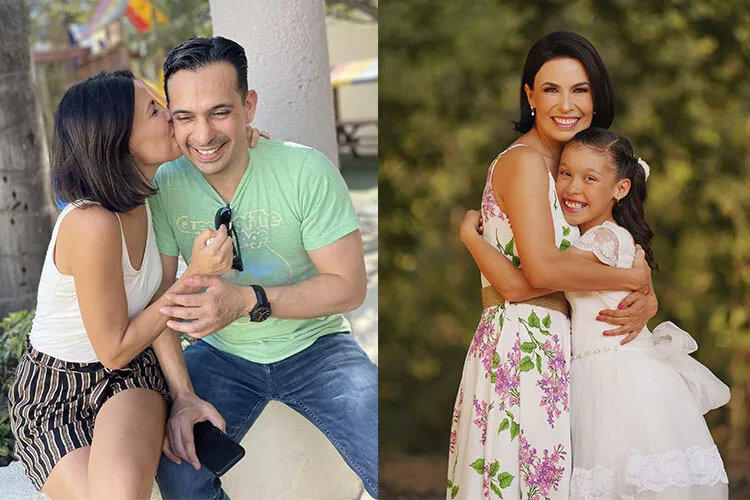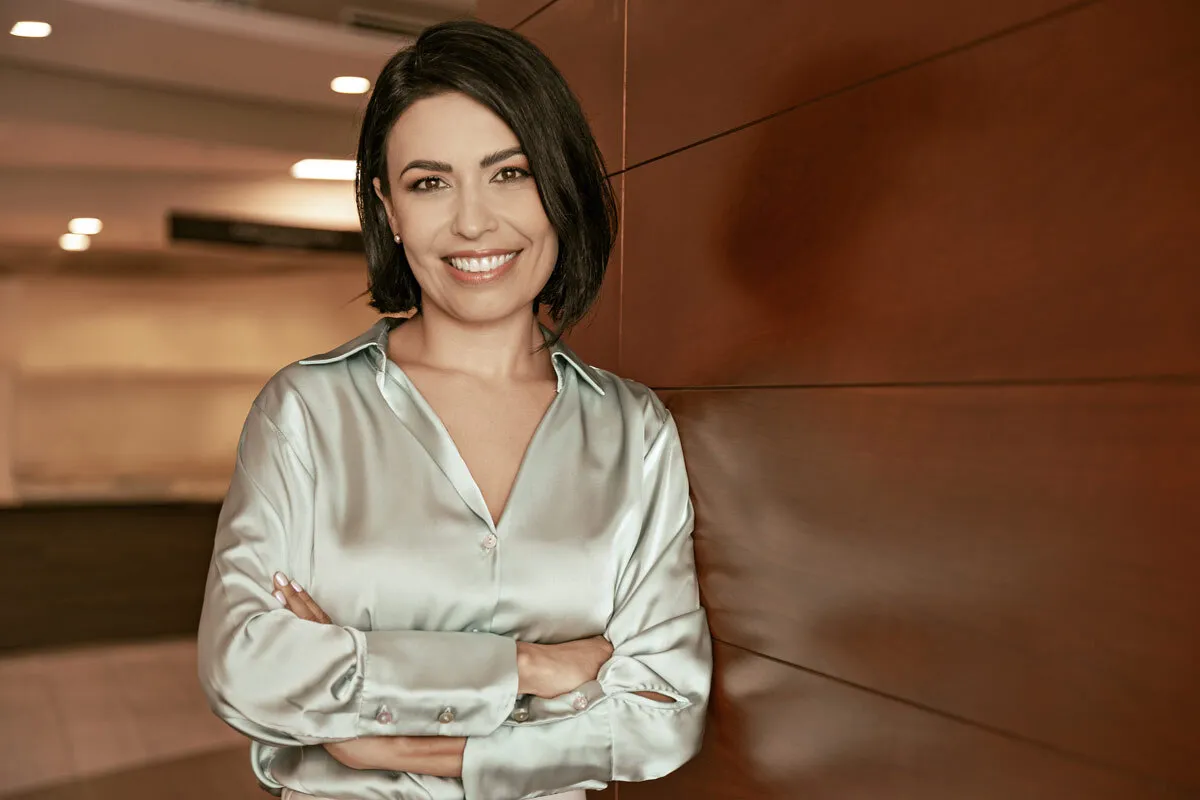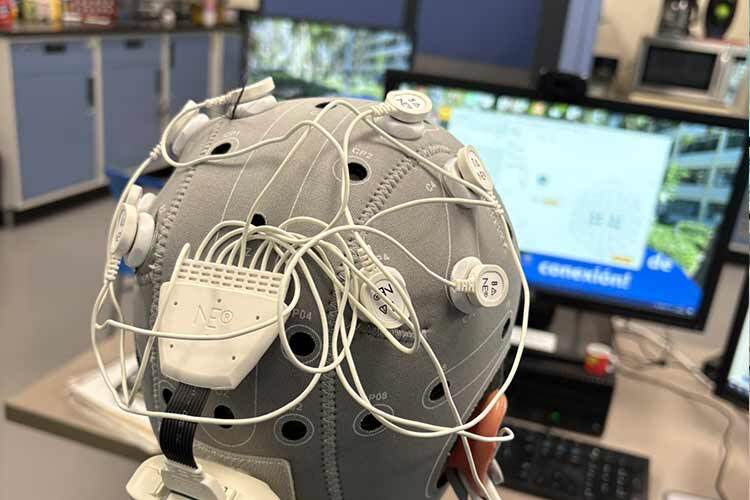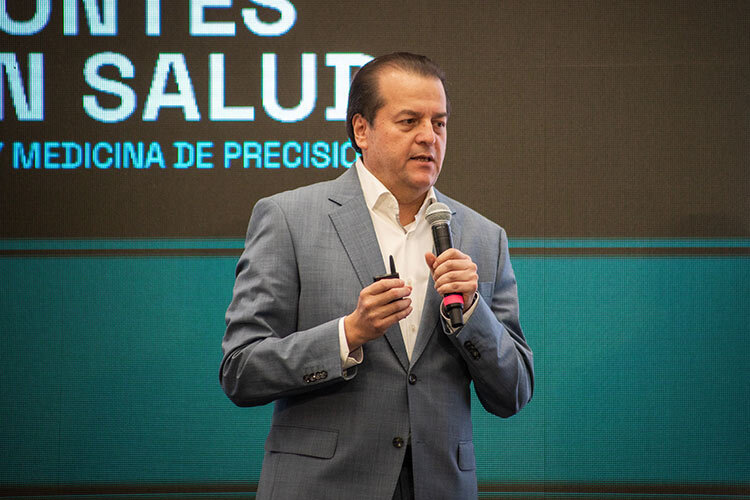Music is one of the passions of the Director of Oncology at TecSalud’s Breast Cancer Center. As a teenager, she considered taking up playing piano professionally. Although her career took a diametrically opposite path, one of the things she enjoys the most is listening to music, going to concerts, and dancing.
A professor at Tec de Monterrey since 2007, she is also a Medical Sciences researcher at the National Institute of Cancerology and the author of more than 150 publications. Founder of the “Young and Strong” program and the Association of Doctors and Researchers in the Fight Against Breast Cancer, Cynthia Villarreal has focused her efforts on studying breast cancer, particularly how it affects young women in Mexico and Latin America.
When she arrives, I observe someone who not only commands respect but also openness. She gives me a confident smile, showing her readiness to converse. During our interview, although she maintained her posture and thought her answers through, she couldn’t stop moving her hands; nor was she afraid to express herself through body language, which kept the conversation flowing.
Science and Breast Cancer
After completing her medical studies at Tec de Monterrey, Cynthia performed her community service at the Salvador Zubirán National Institute of Medical Sciences and Nutrition, where she first came into contact with cancer patients. Discovering the complexity of their diagnoses and knowing that it was an area in which there was a lot to be done led to her taking up this specialization. What’s more, empathy for her patients and the challenges of dealing with breast cancer made her choose this area. When she speaks about this stage of her life, her voice reflects the emotion of having lived through it, confirming that although the outlook may seem complicated, she did not mistake her choice of profession.
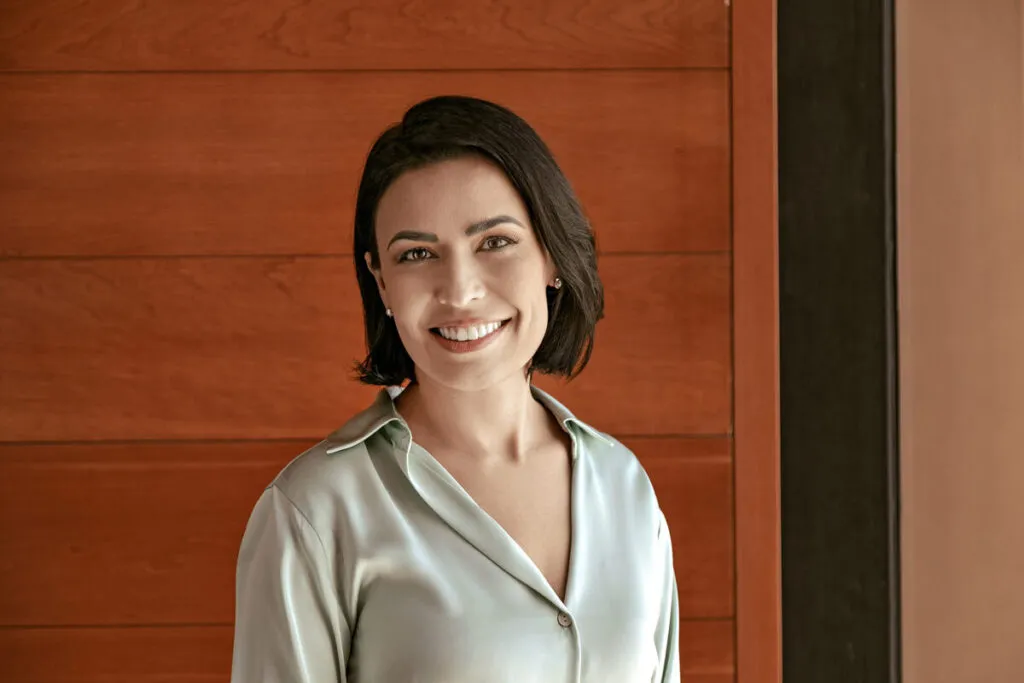
What led you to get involved with research?
Curiosity… and I also met someone who was key to my development: hematologist Maite Collados, who had a research practice. I took my first steps with her, we published the first two articles, and I realized that I really liked it.
In Nutrition, I worked with Dr. Julio Granados, who’s well-known in the field of immunogenetics. I picked up knowledge and experience from him. I collaborated on 10 articles and haven’t stopped since then. In Oncology, I was taught by Dr. Óscar Arrieta, the most important lung cancer researcher in Latin America.
You’ve written dozens of articles. What have you learned from them?
Most challenges teach you a lot, especially when there are changes and you have to rethink your strategy. Not everything ends up being a success. There are investigations that don’t work out despite you giving them your all. That’s part of the process. You have to be sufficiently resilient and humble to cope with it.
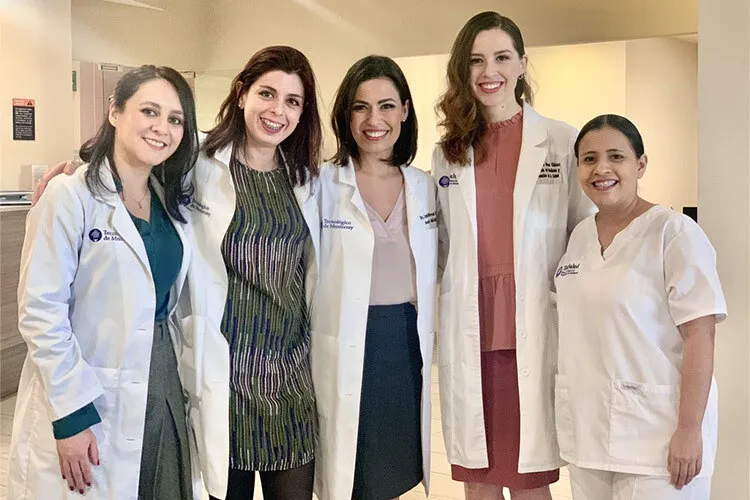
Disseminating knowledge, the key to making progress
In 2013, you wrote about young women with breast cancer in Latin America. What advances have there been since then?
Many, one of which is early diagnosis. Secondly, there’s been a great deal of innovation in treatment, which enables 80 to 85% of patients to be cured. In the case of patients with metastatic cancer, we believe that some will soon be cured or at least have longer life expectancies. We now have patients who are doing well 10 years later. That’s the future.
The oncology area is increasingly looking at the overall outlook for patients and their families. We’re now looking for ways to improve quality of life, both during treatment and in the long-term effects.
What lines of research are you working on now?
Several (she laughs). We do clinical research, which means that instead of working in the lab, we implement strategies to see whether an intervention helps to improve things.
For instance, we created several strategies when we realized that patients want doctors to be more empathetic and explain the information better. One of these is the educational aspect: we developed materials that include information for them to digest at home in their own time. Meanwhile, we’re training oncologists on how to break bad news to see what effect that has on patients.
Another research protocol has to do with incorporating mindfulness. There’s scientific evidence which shows that people who practice it have a better quality of life. It reduces stress and anxiety, improves sleep, and also has favorable outcomes for cancer patients. We recently presented the results at the European Society of Medical Oncology Congress, and we’ll do so at the San Antonio Breast Cancer Symposium in December.
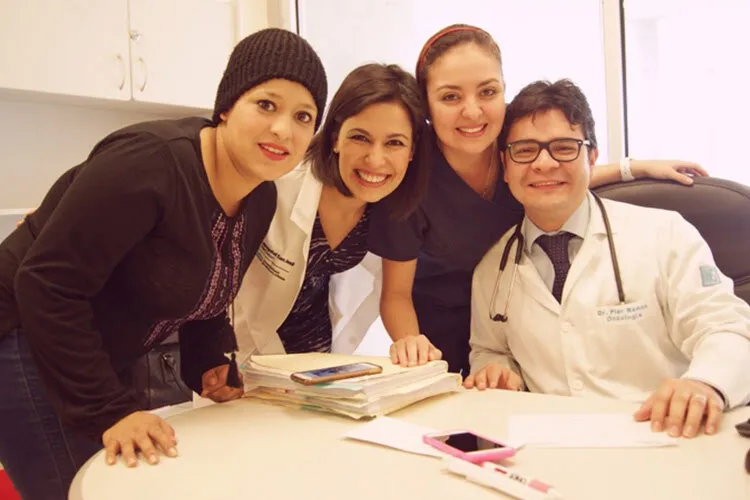
Research gives you a lot of satisfaction…
Publishing gives you a nice feeling because what you’re doing doesn’t just help your patients; by doing research and disseminating your results, you help people you’re never going to meet to have better interventions.
Cynthia Villarreal’s research has earned her several awards, including the Biennial Mexican Health Foundation Award, the Miguel Alemán Valdés Award, three awards from the American Society of Clinical Oncology, one from the European Society for Medical Oncology, and the State of Nuevo León Award. However, the oncologist acknowledges that the merit is not hers alone, but also that of her students and fellows: “They’re collaborations in which everyone benefits: the students learn, publish, and we help each other to make progress in our research. It becomes a virtuous circle.” Moreover, one of her great efforts has been teaching the first advanced breast cancer specialization in Mexico and Latin America, which is now in its ninth year.
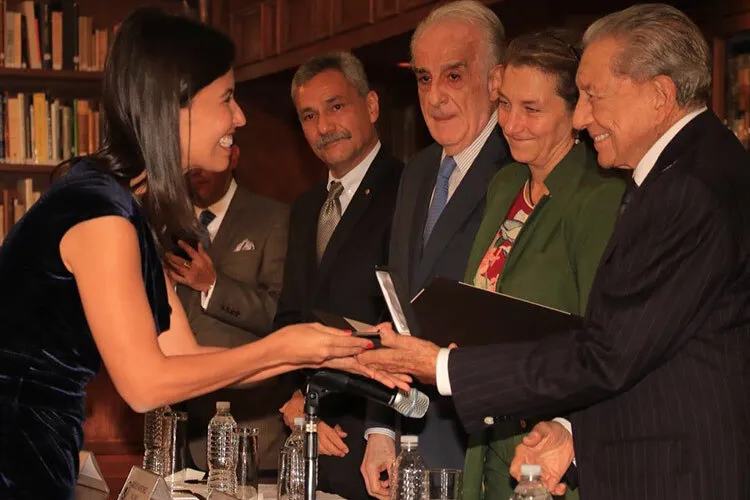
What inspired you to set up the “Young and Strong” program?
The high number of young women with breast cancer. Oncologists are trained to see adult patients; when a 30-year-old woman comes in with breast cancer, you have to understand that maybe she hasn’t fulfilled her wish of becoming a mom, so you have to offer her other strategies.
Who is Cynthia Villarreal outside the hospital?
If I had to describe myself in a single word, I’d probably say I’m dedicated. I give it my all! That goes for my daughter, my boyfriend, my parents, my work, and my friends. I’m committed.
I’m very tenacious. That’s also something that defines me. “No” is not an answer. I always want to get a “yes.” I’m persistent.
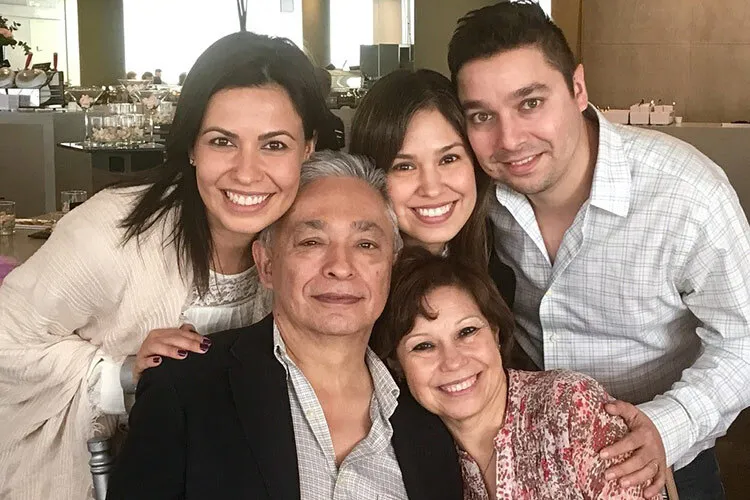
Speaking of your daughter, what’s your relationship with her like? Have you done anything to teach her about breast cancer?
Natalia’s 10 now, and she’s very familiar with the subject. She understands very well that her mom is important to her patients. Sometimes, she asks me how they’re doing and so she is starting to become aware of health.
We have a very nice relationship. I think she’s very confident about talking to me. Because I’m a single mom, that’s encouraged us to have a very close relationship and to talk about everything that’s going on around us. I like traveling with her. That’s the time I set aside to be present with her.
